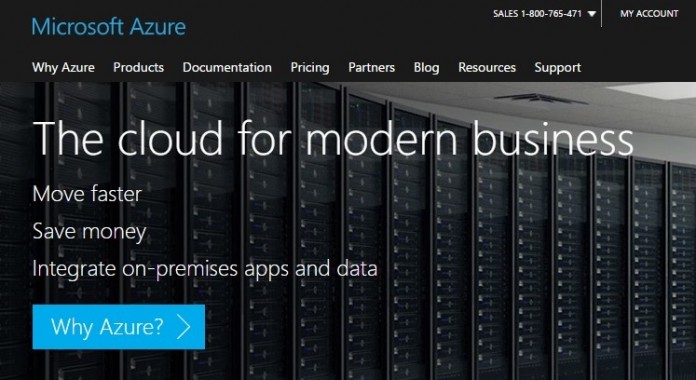Last week, Microsoft announced the addition of several new partners to the Azure Blockchain as a Service plaform, namely Augur, Lisk, BitShares, Syscoin and Slock.it
Augur is A decentralized prediction market platform built on the Ethereum blockchain. The platform is designed enable precise forecasts on any topic - from politics to commerce, from technology to entertainment. Businesses can use Augur’s prediction markets to forecast product launch dates, whether projects should be funded, sales numbers and other key metrics, or anything else they’d like to have more accurate information on.
BitShares is a financial services platform for SmartCoins coupled with a decentralized asset exchange. Everything is open source at GitHub and available under the MIT license. The industrial-grade blockchain currently operates at a three-second block interval with peaks to thousands of transaction per second. BitShares accomplishes this speed while maintaining transaction and identity security through a unique democratic consensus algorithm.
A BitShares’ SmartCoin is price-stable digital asset pegged to the value of various currencies, commodities, stocks and other financial instruments within a derivatives market. This is accomplished by sourcing pricing information from world financial markets, then publishing it to the blockchain to inform the decentralized asset exchange. Markets are made between any asset pairs therein on a serialized order book to mitigate frontloading and maximize transaction throughput.
Lisk, a fork of BitShares and Crypti, aims to revolutionize decentralized application and blockchain technology. Powered by its own crypto-currency Lisk, the platform allows developers worldwide to easily deploy their own custom blockchains, and program decentralized applications on top of them, using the highly accessible programming language JavaScript. They will provide guides and ARM templates to use Lisk for the Internet of Things, custom blockchain deployment and development of decentralized applications. Lisk recently partnered with Chain of Things, a research lab focused on blockchain solutions for IoT.
Through its suite of blockchain-enabled services, Syscoin provides merchants the ability to buy and sell goods and services, encrypted messaging, escrow, digital asset storage, reselling and more. Syscoin also provides a replacement for typical blockchain addresses, known as aliases. The goal of Syscoin is to integrate with major centralized marketplace and e-commerce platforms to help ease merchants transition from centralized marketplace solutions to decentralized, blockchain-based marketplaces with lower costs, better reliability and a much higher level of redundancy.
Slock.it aims to address security, identity, coordination and privacy over billions of devices. As part of the collaborative economy, it permits objects to be rented, sold or share securely, without middlemen. Integration with Microsoft Azure will make it easier for developers to build apps for Slock.it first product, the Ethereum Computer. Apps built on Azure Compute Cloud can be deployed without modifications to the Ethereum Computer, making the Azure cloud the perfect environment to experiment with Slock.it. Deploying Slock.it on Azure also means integration with business analytics, data management, identity and messaging. Physical access control can be automated and decentralized with the Slock.it App, and now with Azure integration, it can be done as part of an incremental transition toward decentralization, removing the need for an expensive integrator or spending months experimenting with costly PoCs.
Microsoft has this year been aggressively recruiting partners to its Blockchain as a Service platform. Those partners include the following distributed ledger or blockchain technology companies or projects: Alphapoint, BitPay, Bitcoin Core, BlockApps, CoinPrism, ConsenSys, Emercoin, Eris Industries, Factom, IOTA, LibraTax, Manifold Technology, Multichan (Coin Solutions), Netki, and Ripple.





